'It Was a Painful Process': Andie Founder Melanie Travis on Fundraising for Her Swimwear Startup
Travis discusses facing gender bias from investors, how inclusivity catapulted her startup's success, and how brands are getting LGBTQ+ marketing all wrong. (Hint: stop rainbow-washing your brand each June.)
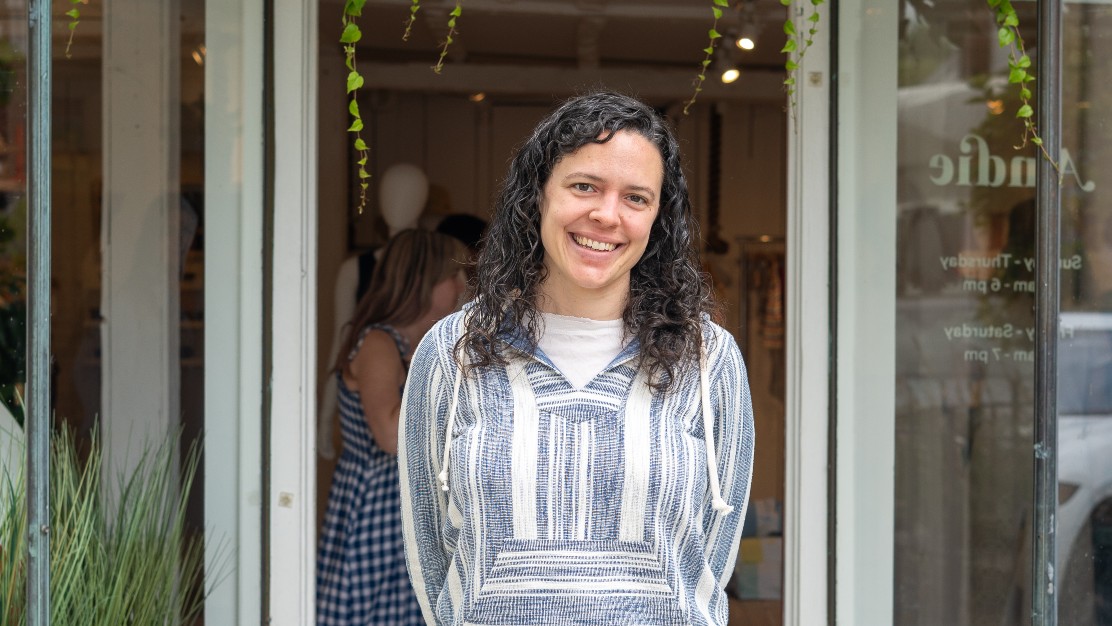

Melanie Travis founded her swimsuit company, Andie Swim, in 2017 to challenge the out-of-touch and oversexualized marketing that powered the industry—as well as its wasteful manufacturing processes that largely relied on fleeting trends and synthetics. "You could see little sprinkles of startups that were nodding to inclusivity and sustainability," she says, but Andie Swim was ultimately one of the first companies to incorporate a fully sustainable supply chain and produce swimsuits using exclusively recycled material.
The brand was also among the first to prioritize body inclusivity.
“To me, there was a huge disconnect between the pervasive marketing imagery that was out there for women's swim and the realities of shopping for swim. I was just really thinking about me and my friends and my community, and what I knew we wanted," she continues. "Because especially at that time if you Google-image-searched 'women's swimwear,' you'd get, like, women on rocky cliffsides, doused in some weird oil, looking super uncomfortable. And, to me, these images have clearly been staged for the male gaze.”
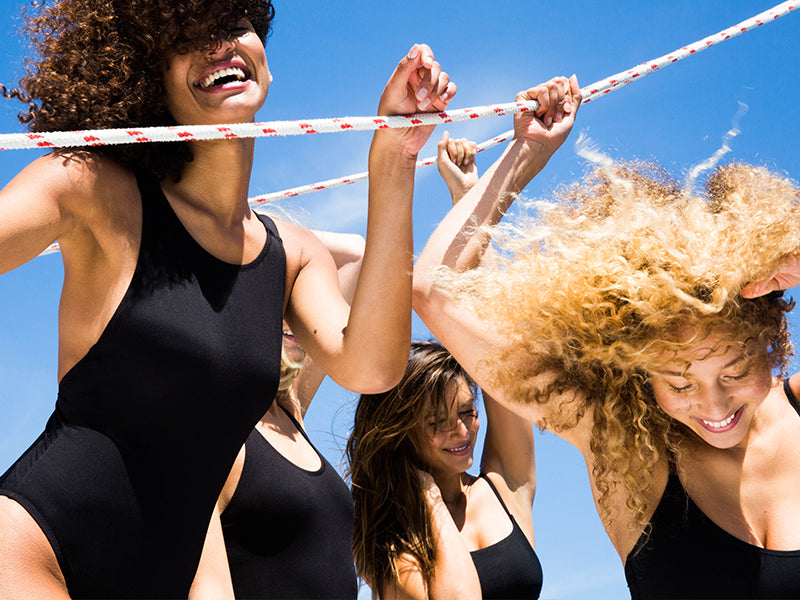
Andie Swim's ad campaigns are a departure from traditional swim marketing, showing women of various body types.
As many consumers know, shopping for and wearing swimwear can be an excruciating experience, particularly when you have anxieties running through your head about impossible societal beauty standards.
“There's that moment when you go to the beach and you're taking off your clothes to get in the water or lay in the sun, and that is such a vulnerable moment for women,” Travis points out. She says she set out to start a brand that makes beautiful, high-quality swim that's easy to wear and easy to shop for—and that has imagery that is by and for women who are the customers.
For Travis, who worked at FourSquare, Kickstarter, and BarkBox before starting Andie, this was a tall order for her New York–based startup. “It's been five years and we've had really positive results and engagement, so I think we're doing something right," she says. "Or, at least, we're on the right track.”
On the right track, indeed. As the brand celebrates its five-year anniversary, it celebrates another milestone: one million swimsuits sold. It also experienced 100 percent year-over-year growth from 2020 to 2021, and last year raised $18.5 million in Series B funding. The company has partnered with celebrities like Demi Moore and Claire Holt, and operates a series of pop-up stores in California and New York, including a summer shop in Sag Harbor in Long Island.
Get exclusive access to fashion and beauty trends, hot-off-the-press celebrity news, and more.
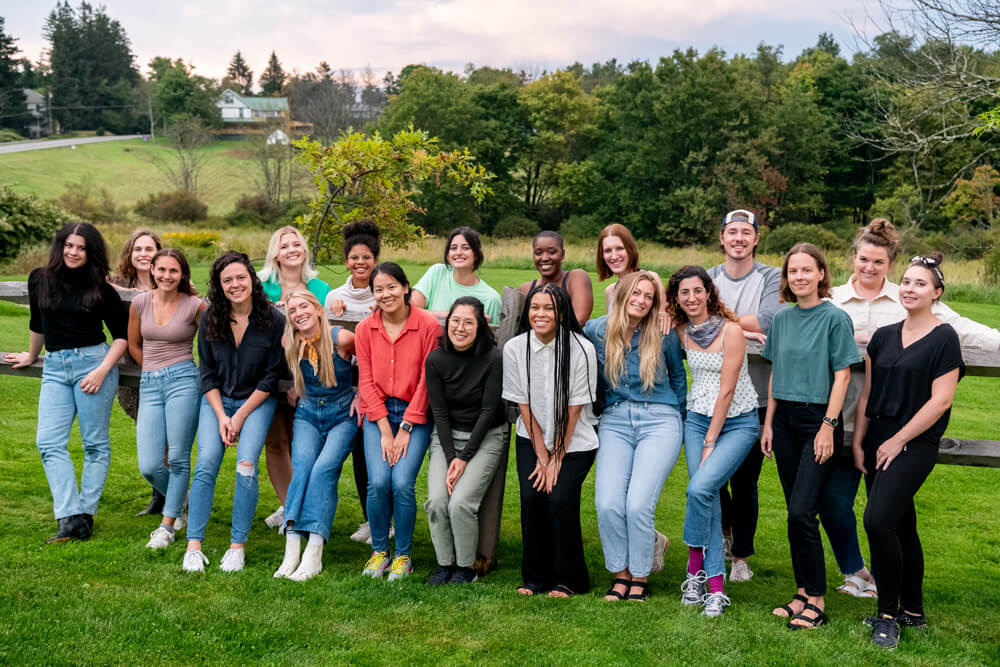
The Andie team at a company retreat.
But Travis reminds us that neither monetary success nor widespread support were always guaranteed for the now-buzzy brand. When Travis was pitching to investors, she was faced with crowds of men who simply didn’t get it. “In almost every room, nine out of 10 investors are straight white men who don’t see the point,” says Travis, herself a member of the LGBTQ+ community. “We really need to diversify the investor landscape, but my advice [to aspiring entrepreneurs] is to never give up. ... It takes any entrepreneur that's not a straight white male a few times longer to raise capital, so it's a struggle and you have to pound the pavement like crazy, but if you don't give up, you tend to succeed.”
The experience inspired Travis’ next goal: become an investor in the next wave of female-led ventures. “Because the more you have these female, LGBTQ+, and/or women of color entrepreneurs succeeding at raising capital, building businesses, and then entering the investor community, the more we're going to experience a sea of change,” she says.
If you really stand with the LGBTQ community, then have the rainbow up year-round.
Melanie Travis
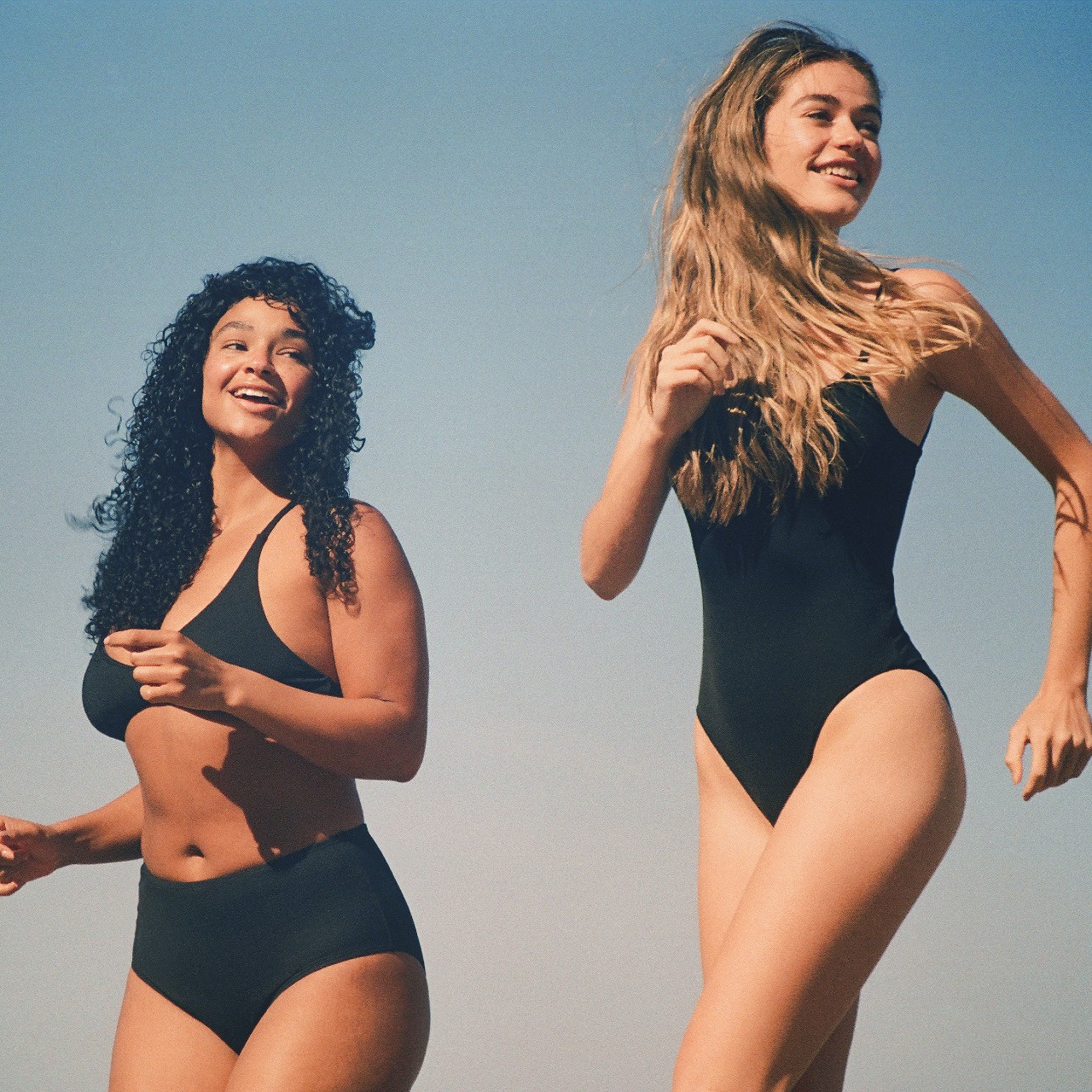
All Andie Swim suits are designed with inclusivity in mind.
Travis hopes that sea change inspires inclusivity in all forms, because her mission extends beyond body image. She's pushing for brands to be more genuine in the way they celebrate the LGBTQ+ community, and critiques the inauthentic displays of support that brands deploy each Pride Month―a practice known as "rainbow washing," which Travis dismisses as an "obvious, thinly-veiled marketing gimmick."
She calls out companies that change Facebook logos to rainbows, but then will donate to campaigns that are against gay marriage or otherwise have an anti-LGBTQ+ agenda. “So it's kind of like they're trying to take our money during the month when they see marketing efficiencies, and then they turn around and give that money directly to causes that hurt us.”
But marketing to the LGBTQ+ community is a deeply personal issue, and Travis admits rainbow-washing leaves her conflicted as a CEO. “I will say that when I was growing up, if I would see a rainbow on a storefront or somewhere, I would be filled with pride and I'd be so happy. But they were very rare to see. So now, I sort of put myself back in that position. If you're young and you know that you're gay, you see that symbolism and feel more seen and heard...I have a lot of nuanced feelings about this."
She’s mapped out solutions for herself, and perhaps other brand visionaries. "If you really stand with the LGBTQ+ community," advises Travis, "then have the rainbow up year-round. And if you have corporate giving strategies, make that part of your annual strategy. No matter where your company is based, there are tons of volunteer opportunities that can help these causes, so if it's something that the brand actually cares about and that's part of its ethos, the support should not be limited to 30 days. It should be a year-round thing."
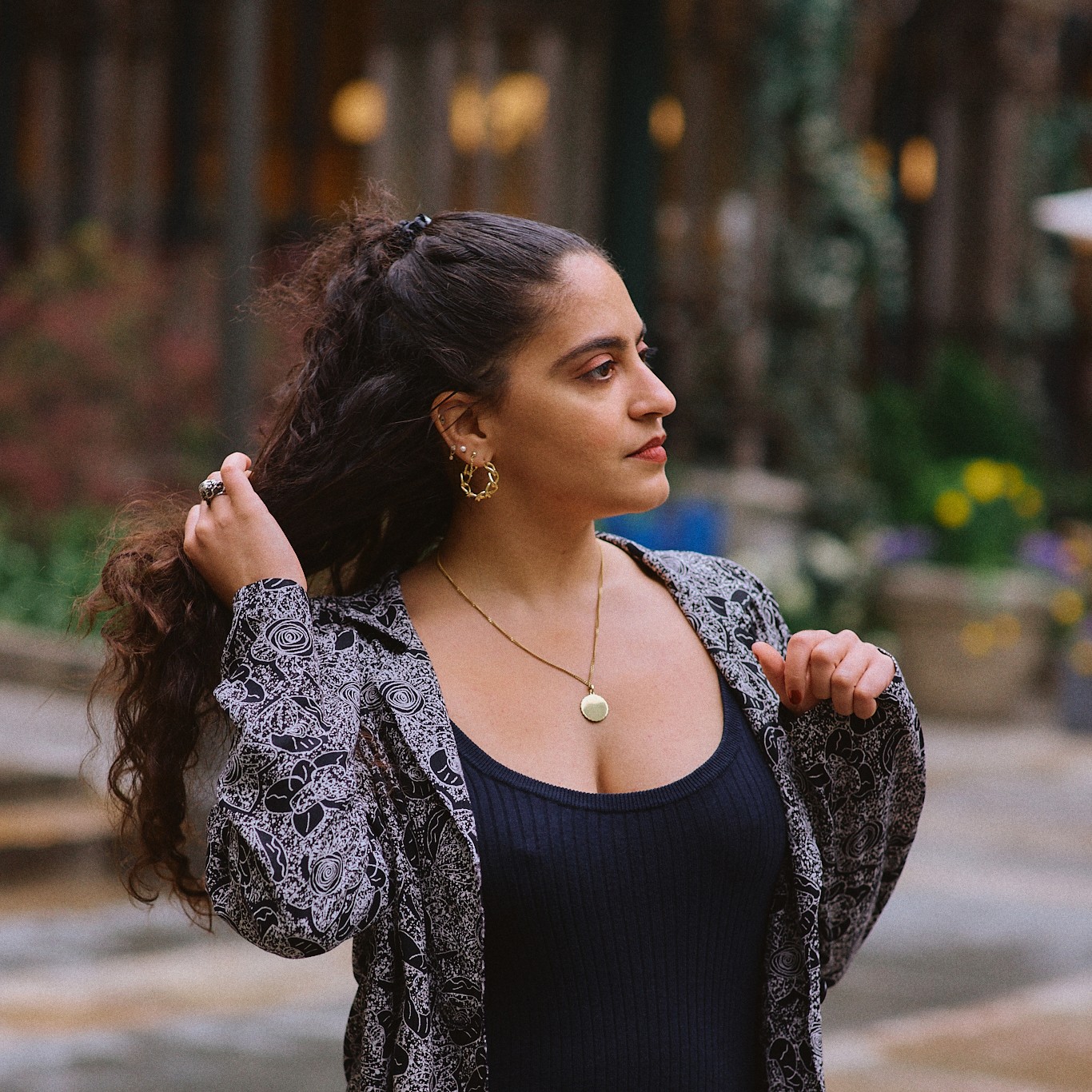
Gabrielle Ulubay is a Beauty Writer at Marie Claire. She has also written about sexual wellness, politics, culture, and fashion at Marie Claire and at publications including The New York Times, HuffPost Personal, Bustle, Alma, Muskrat Magazine, O'Bheal, and elsewhere. Her personal essay in The New York Times' Modern Love column kickstarted her professional writing career in 2018, and that piece has since been printed in the 2019 revised edition of the Modern Love book. Having studied history, international relations, and film, she has made films on politics and gender equity in addition to writing about cinema for Film Ireland, University College Cork, and on her personal blog, gabrielleulubay.medium.com. Before working with Marie Claire, Gabrielle worked in local government, higher education, and sales, and has resided in four countries and counting. She has worked extensively in the e-commerce and sales spaces since 2020, and spent two years at Drizly, where she developed an expertise in finding the best, highest quality goods and experiences money can buy.
Deeply political, she believes that skincare, haircare, and sexual wellness are central tenets to one's overall health and fights for them to be taken seriously, especially for people of color. She also loves studying makeup as a means of artistic expression, drawing on her experience as an artist in her analysis of beauty trends. She's based in New York City, where she can be found watching movies or running her art business when she isn't writing. Find her on Twitter at @GabrielleUlubay or on Instagram at @gabrielle.ulubay, or follow her art at @suburban.graffiti.art